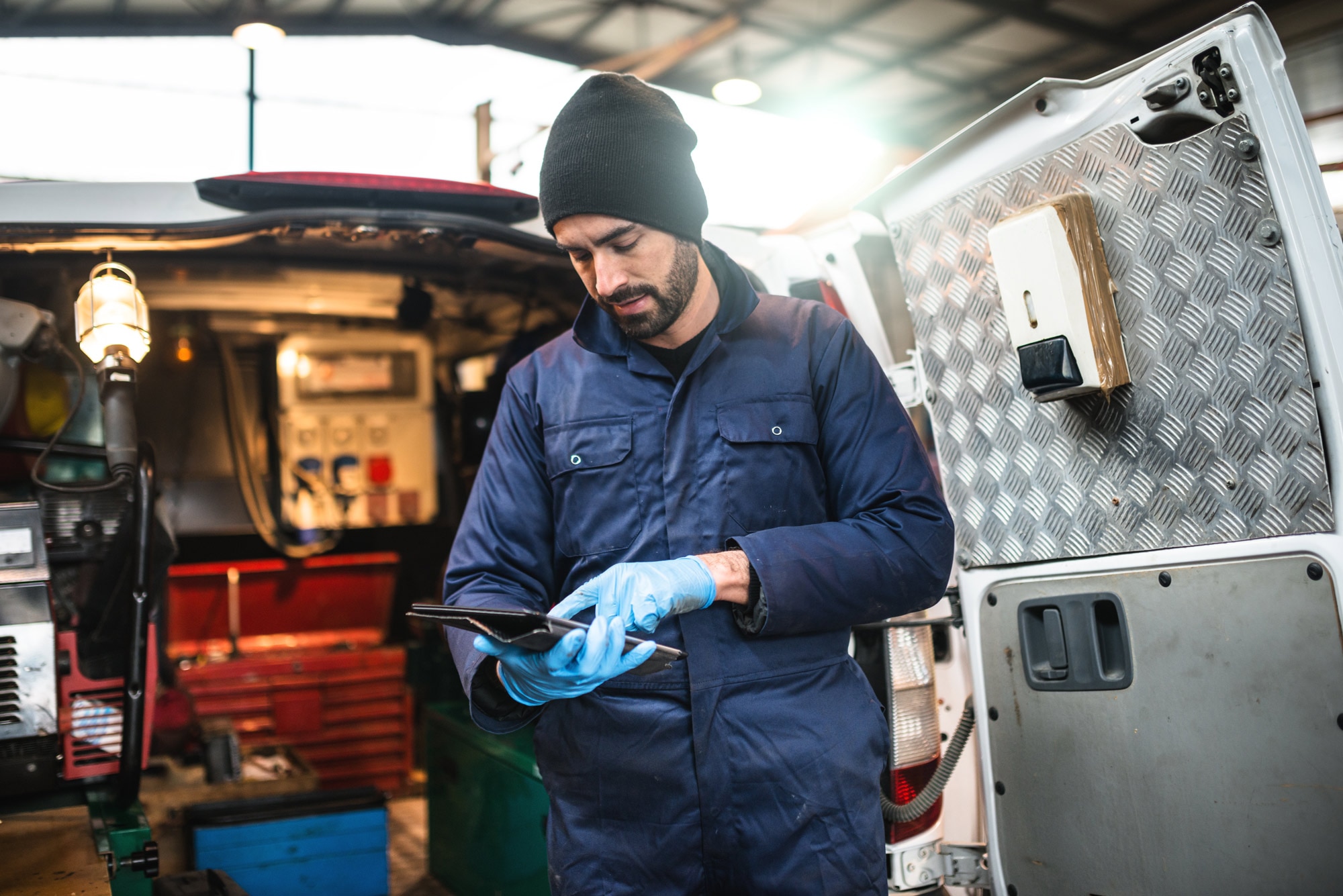Mobile Mechanics: What You Need to Know
This convenient, affordable service is a great alternative to traditional repair shops.
 Getty Images
Getty Images
Getting your car repaired can be inconvenient and expensive. Typically, it means scheduling a time to drop it off at a garage without knowing when it will be ready to pick up and then having to find a way home — and back again.
Mobile mechanic services can greatly reduce the hassle of car repair and maintenance and do it for less than you'd typically pay at a traditional repair shop.
Here's a look at how mobile mechanics operate, the kinds of jobs they can do, and why you might want to consider — or decide against — hiring one the next time your car needs work.
A Mobile Mechanic Will Come to You to Fix Your Car
As the name suggests, mobile mechanics are professional automotive technicians who have traded the confines of a traditional garage for an on-the-road business model where they take their repair services to you. Rather than keep their tools, diagnostic equipment, and various lubes, oils, and fluids in a central location, they load up a truck and transport their expertise and equipment wherever it might be needed — typically your home or workplace.
Some mobile mechanics focus on serving individual customers, while others handle fleet duty — taxis, rental cars, commercial — vehicles for companies that might not have the budget to staff an in-house repair shop or might need support when they're operating far from home base.
Mobile Mechanics Can Handle a Wide Range of Car-Repair Jobs
Many mobile mechanics claim there are very few repair jobs they can't handle. The traditional image of professional mechanics often situates them under a hydraulic lift in a fully stocked garage, but technicians are typically able to transport the specific equipment they'll need to get the job done outside of that setting.
Some of the most common jobs mobile mechanics are called to perform are brake jobs (pads, fluid, shoes, discs), fluid changes (coolant, oil, transmission), spark plug replacement, heating and air-conditioning maintenance, filter replacement, diagnosis of check-engine lights, and tire or wheel repair. Accessing a vehicle's underside is no problem for most mobile mechanics, who have access to hand-operated and power jacking devices, which means suspension work can also be done remotely.
Mobile Mechanics Are All About Convenience
There are several reasons you might consider choosing a mobile mechanic over a traditional garage. The first is convenience. Since the mechanic comes to you, you won't have to take time out of your day — or time off work — to have repair or service work done.
Accurate scheduling is another benefit. Sometimes, a standard garage will ask you to leave your car for several days so they can get to it whenever a slot opens up. With a mobile mechanic, you'll have a fixed time window, and it's in the technician's interest to stick tightly to each appointment slot to maximize efficiency.
Because their overhead is lower, mobile mechanics can also be less expensive than a repair shop. There's no rent to pay, and typically there's fewer staff involved, especially compared to larger organizations such as the service center at a dealership. These savings can be passed on to the customer.
If your vehicle breaks down and is completely immobilized, hiring a mobile mechanic to come to you also means you won't have to pay to get your car or truck towed to the repair shop, saving you both time and money.
Mobile Car Repair Has Its Limitations
There are a few considerations that might turn you away from using a mobile mechanic service. Most of the time, you'll be asked to have your vehicle on a level asphalt surface, as that's the safest place to jack up and support a vehicle. If that's not possible where you live or work, you might need to get your vehicle to a garage instead.
You'll also need to make sure it's legal in your area to do mechanical work in your own driveway or on the street. If you plan to have the work done while you're at work, you'll need to check the building's parking lot policy for similar prohibitions.
Consider, too, that not all jobs can be done safely or efficiently outside of a garage. For intensive, complex work that might require highly specialized equipment or that could take several days to complete — such as an engine rebuild — leaving a disassembled car outside, exposed to the elements and potential theft, it may be better to seek out a traditional repair shop.
Severe weather can also make it impossible for a mobile mechanic to get the job done. Extreme cold or snow in the winter or high summer temperatures could delay a repair job, as could heavy rain. Seasonal variability in weather conditions can easily negate the convenience of a mobile repair service and send you back to a garage that's fully protected from the elements.
Written by humans.
Edited by humans.
 Benjamin Hunting
Benjamin HuntingBenjamin Hunting is a writer and podcast host who contributes to a number of newspapers, automotive magazines, and online publications. More than a decade into his career, he enjoys keeping the shiny side up during track days and always has one too many classic vehicle projects partially disassembled in his garage at any given time. Remember, if it's not leaking, it's probably empty.
Related articles
View more related articles